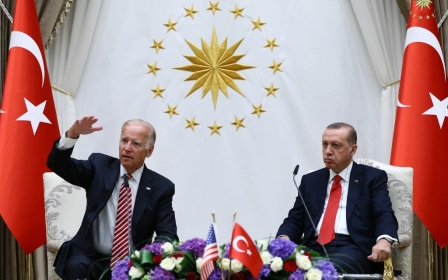Covid-19 pandemic fuelled antisemitic conspiracy theories: EU study

Antisemitism increased during the Covid-19 pandemic, particularly online, a new EU report said on Tuesday, but it found gaps in data made it difficult to fully portray the severity of the issue.
In addition to old lies being revived, "new antisemitic myths and conspiracy theories that blame Jews for the pandemic have come to the fore," said the report by the European Union Agency for Fundamental Rights (FRA).
The FRA's findings - entitled Antisemitism: Overview of Antisemitic Incidents Recorded in the European Union 2010-2020 - also found that antisemitic acts were consistently under-reported.
The lack of data on the issue made it harder to tackle the problem, said the agency.
The report based its findings on a review of official data compiled by EU member states, and what it called unofficial data collected by civil society organisations.
Data from Albania, North Macedonia, and Serbia, all candidate countries to join the EU, was also used. There was no official data available from two member states, Hungary and Portugal.
More reporting needed
Rights groups in Germany have also noted the link between a surge in antisemitism and the Covid-19 pandemic.
In the first months of the pandemic, the Department for Research and Information on Antisemitism Berlin (Rias), said 44 percent of the incidents it had recorded were linked to the coronavirus.
According to the FRA report, a federation of Jewish communities in the Czech Republic recorded 874 incidents in 2020, up from 694 the previous year.
Almost all of them were published in the media or online, and many concerned antisemitic conspiracy theories, specifically related to the pandemic, it said.
"Not only do victims and witnesses need to be encouraged to report antisemitic incidents, but the authorities need to have systems in place that enable the recording and comparison of such incidents," the report said.
The FRA found that less than half of the countries in the EU had national strategies or action plans to tackle anti-Jewish acts.
Six of those countries that do (Belgium, the Czech Republic, France, Greece, Hungary, and the Netherlands) have established cooperation mechanisms with civil society organisations to collect data on antisemitic incidents.
"Antisemitism is a serious problem," FRA director Michael O'Flaherty said in a statement introducing the report. "But without the data, we do not know how serious it is."
EU countries needed to encourage reporting of such incidents and improve the recording and collection of data, he added.
"With that we will be better able to tackle hatred and prejudice against Jews," said O'Flaherty.
This article is available in French on Middle East Eye French edition.
Middle East Eye delivers independent and unrivalled coverage and analysis of the Middle East, North Africa and beyond. To learn more about republishing this content and the associated fees, please fill out this form. More about MEE can be found here.





